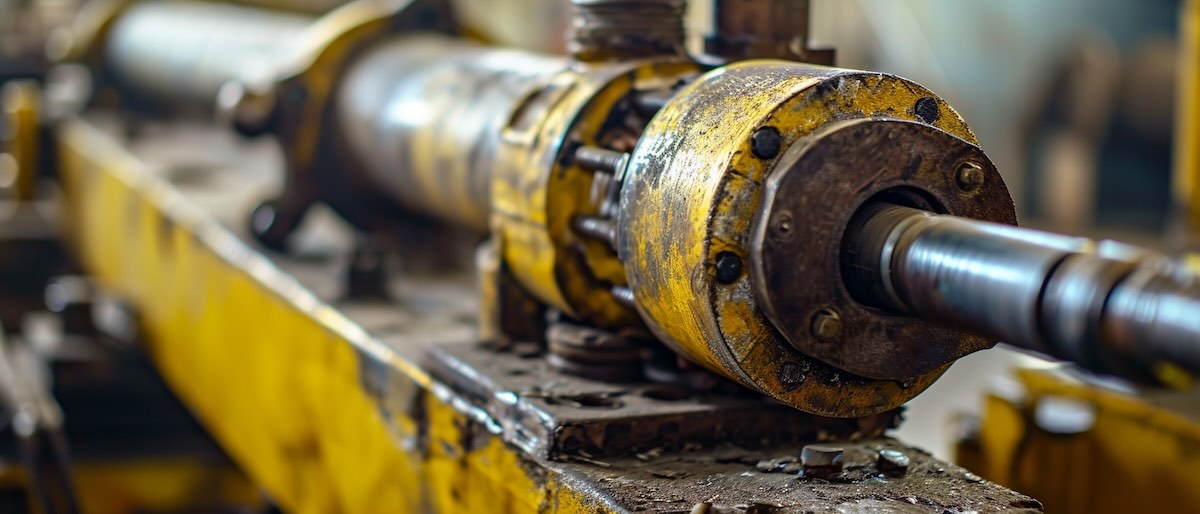What does "Hydraulics" mean?
You’ve probably heard the word “hydraulics†before, but very few people actually have a working understanding of what hydraulics entails, how it works, and the incredible amount of use cases found throughout a variety of markets.
The word hydraulics is derived from the Greek “hydr†(meaning water) and “aulos†(meaning pipe)
In simplest terms, hydraulic technology comprises any system that harnesses the power of fluids (typically oil or water) to create motion or force. Hydraulic technology is used across many markets. Of particular note, the farming and agriculture markets have found incredibly useful applications of advanced hydraulic technology to improve power and efficiency within their work.
What is a hydraulic system?
In its most basic form, a hydraulic system is made up of a closed loop of fluid-filled tubes and cylinders. When pressure is applied to the fluid within the system, it generates force, allowing for the transmission of power. This force can be used to lift heavy loads, move machinery, or even control steering within vehicles.
The transformative breakthrough in hydraulics occurred during the Industrial Revolution when engineers recognized its potential to replace mechanical systems with fluid-based ones. This innovation revolutionized various industries, enabling the development of powerful machines and enhancing efficiency in construction, manufacturing, and transportation.
What equipment uses hydraulics?
Nowadays, hydraulics are ubiquitous—present in everyday machinery and industrial equipment. They power heavy machinery like excavators and bulldozers, facilitate precise movements in manufacturing equipment, and even aid in controlling brakes in vehicles.
Throughout all applications, hydraulic systems enhance efficiency by using pumps, cylinders, hoses, and valves to provide the necessary force to perform agricultural tasks effectively.
Increased complexities in hydraulic technology
With modern technology, hydraulic systems have become increasingly sophisticated. Whereas hydraulic systems in the 18th and 19th centuries primarily powered crude machinery such as simple presses and rams, throughout the 20th century, hydraulic technology became increasingly associated with complex systems such as cultivators, excavators, and motors for powering equipment. With this came an increased reliance on electronics and computers to facilitate hydraulic equipment.
As is the case with any important machinery, ongoing maintenance and repairs are a given. As hydraulic technology has increased, ease of diagnosis has decreased. When a baler or compactor needs work, it is not always clear where the problem lies. Is it a hydraulics issue? An electrical issue? A software issue? It’s not always clear who should be called to resolve issues related to hydraulic equipment.
Fortunately, there are specialized companies with expertise in the area of modern hydraulics who can give quick, reliable diagnoses when hydraulic equipment needs to be quickly and efficiently repaired.
Shupe Fabrication: Experts in hydraulic diagnosis and repair
With all these interwoven components within modern hydraulic technology, it can be unclear who to call to resolve your issue. If it’s an electrical or software issue, an expert in hydraulics or metal fabrication alone may not be able to diagnose it. If it’s a hydraulic issue, an electrician may not know how to fix it. Calling the wrong expert to diagnose an issue means that your issue is liable to go unresolved, resulting in a longer and more costly repair.
At Shupe Fabrication, our goal is to get you back to work as fast as possible by providing accurate diagnosis. We are experts in diagnosing and repairing issues with hydraulic systems. With thorough experience with equipment spanning anywhere from 30-ton to 500-ton, 5-horsepower to 1000-horsepower—presses, pumps, compactors, balers, and more—we offer premium, on-site service. And our promise is always the same: we will do it well, and make it right—guaranteed.
Get a Quote


